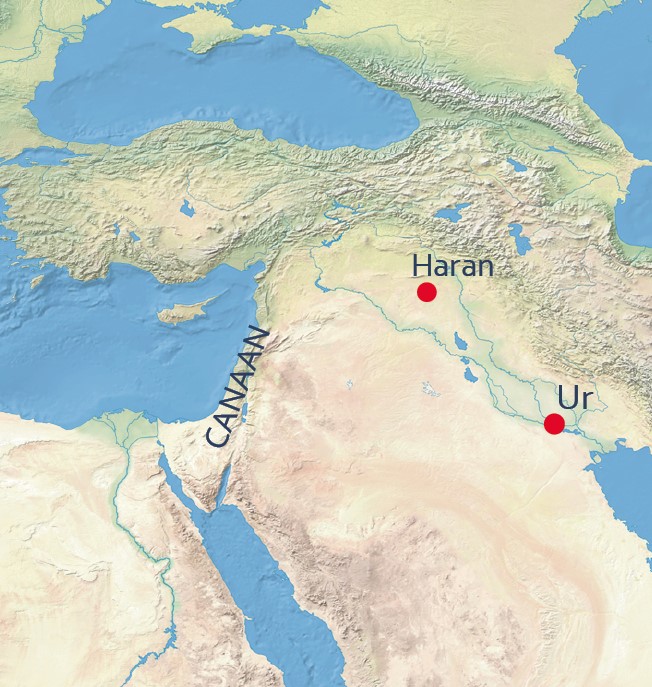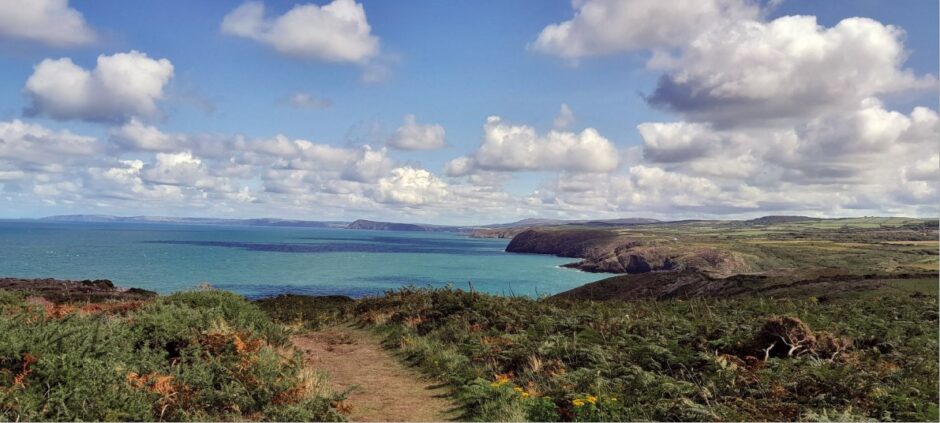THE name Abraham occurs so many times in the Bible, that he is obviously a very important character. The man Abraham was originally called Abram, and his name first occurs in Genesis 11:26: ‘When Terah had lived 70 years, he fathered Abram, Nahor, and Haran.’ (The date is about 2000 BC.)
Terah, his father, led his family out of their home in Ur, in Babylonia, and they all headed north between the rivers Tigris and Euphrates. But in the New Testament commentary on this event we learn that God had previously instructed Abram to go on this journey (Acts 7:2–3), and so we must note that Abram was doing God’s will.
The family arrived in Haran, and settled there, and after Terah had died Abram led a group, including his nephew Lot and his family, south-west until they reached Canaan (the land that we know as Israel). Genesis 12:1 is again a record of God telling Abram: ‘Go from your country and your kindred and your father’s house to the land that I will show you.’ God stresses to Abram that he must leave his previous life behind, and names three components of his previous life:
1. your country = Ur
2. your kindred = the family who settled in Haran
3. your father’s house = Lot.
And it was in Canaan that God told Abram,’To your offspring I will give this land’ (Genesis 12:7). So this was to be their Promised Land.
There are three very important mentions of Abraham that we must now look at:
1. ‘He was called a friend of God’
(James 2:23). This is the only occasion where this wonderful title is used of anybody.
2. ‘In you all the families of the earth shall be blessed’ (Genesis 12:3). So Abraham was to be a key link in God’s dealings with all people.
3. ‘ The book of the genealogy of Jesus Christ, the son of David, the son of Abraham’ (Matthew 1:1)—the first words in the New Testament. Abraham was clearly therefore an ancestor of Jesus.
Living in Canaan
Abram’s nephew called Lot had journeyed with him to Canaan, but as both their herds of animals were very large, this caused a rift in the family, and Abram suggested that they separate. Lot chose to go east, but shortly afterwards ‘The Lord said to Abram, after Lot had separated from him, “Lift up your eyes and look from the place where you are, northward and southward and eastward and westward, for all the land that you see I will give to you and to your offspring forever”’ (Genesis 13:14–15). We must notice that God included ‘east’, showing that even Lot’s area was in the future to become Abram’s.
God performed a special miracle for Abram and his wife Sarai when they were both very old, and baby Isaac was born. God then changed Abram’s name to Abraham (which means Father of a Multitude), and Sarai’s name was changed to Sarah (Princess).
Abraham lived until he was 175, and was privileged to see his twin grandsons Esau and Jacob grow up for their first 15 years. God’s chosen line for the promises he made to Abraham was through Jacob. Jacob’s name was later changed to Israel, and that is why the nation has been known as Israel. Their other name ‘Jews’ was probably derived from the area where the tribe of Judah (one of Jacob’s 12 sons) settled.
A Brief History
When we’re introduced to Abram the world had progressed approximately 2000 years since God made Adam and Eve. God gave the first couple the ability to choose their actions. We call this “free will”. Of course God could have made us differently and programmed us to do certain things, but then He could not have rewarded or punished us.
We are not told much about that first 2000 years, except that people chose not to obey God, and so He sent the devastating flood which destroyed all except Noah and his family (Genesis 6). It was when God again saw that the new generations were not obeying Him, that He chose the godly man Abram, and told him to leave his home in Mesopotamia and to travel to Canaan. From that time onwards the rest of the Bible is about Abraham’s family and their near neighbours. About five hundred years after Abraham, Moses led the nation of Israel out of their slavery in Egypt, and gave them God’s system of laws and religious life known as “The Law of Moses”.
About 1000 years after Abraham, King David played an important part in Israel’s development, and then, to cut a long story very short, Jesus Christ was born to a Jewish woman called Mary. Christianity split away from Judaism, and both systems of belief have existed side by side until now.
The Importance of Abraham
God made a number of promises to Abraham, which are an extremely important part of the Bible. Three of these are:
1. Abraham’s family were promised their land (Israel) for ever
2. they would become a very large nation;
3. and through him all families of the earth will be blessed.
The more we consider the man Abraham, the more we realise the greatness of his faith. He left the sophisticated, prosperous city of Ur, and lived for the rest of his life in tents. He ‘died in faith, not having received the things promised’
(Hebrews 11:13). Abraham and others are still asleep in death, waiting for the time when Jesus returns and raises the dead. Until that time Abraham, David, Mary and all those of us who believe, have to wait to receive the promises.
When Paul wrote his letter to the Galatians (in modern day Turkey), he used Abraham’s name eight times in chapter 3. He quoted God’s blessing to Abraham from Genesis 12:1–3:
Know then that it is those of faith who are the sons of Abraham. And the Scripture, foreseeing that God would justify the Gentiles by faith, preached the gospel beforehand to Abraham, saying, “In you shall all the nations be blessed.” So then, those who are of faith are blessed along with Abraham, the man of faith (Galatians 3:7–9).
When God said ‘In you shall all the nations of the earth be blessed’, this was in fact the Gospel (or ‘Good News’). This shows that those of us who are Gentiles (not Jews), also have real hope. It’s a lovely link between the Old and the New Testament.
Believers in Jesus Christ must be baptized, showing their commitment to Jesus and the Lord God. In baptism we wash away our old life, and its politics and human aspirations, and become a part of God’s family. Then, as Paul concludes:
In Christ Jesus you are all sons of God, through faith. For as many of you as were baptized into Christ have put on Christ. There is neither Jew nor Greek, there is neither slave nor free, there is no male and female, for you are all one in Christ Jesus. And if you are Christ’s, then you are Abraham’s offspring, heirs according to promise’ (Galatians 3:26–29).
So we too will inherit those promises God made to Abraham.
David Simpson



